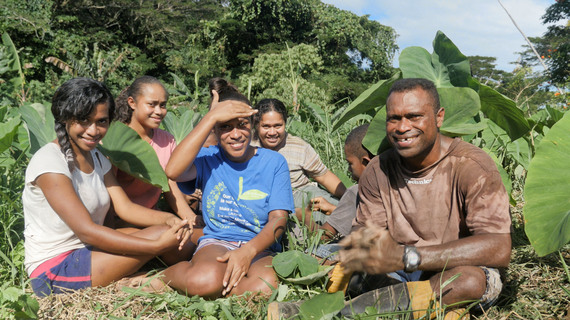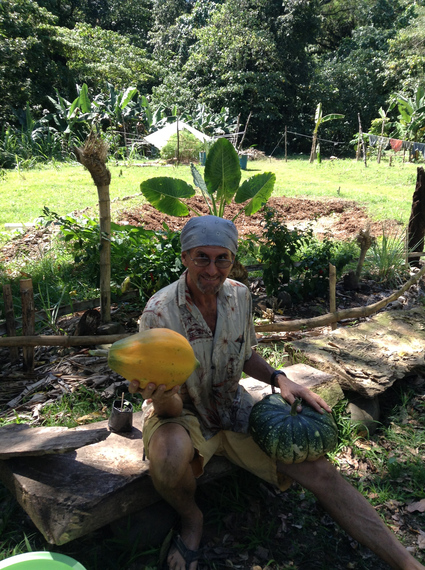Free land for struggling farmers. This might seem like a crazy dream, but it's a wonderful reality for some Fijians. The Naqaqa Giving Foundation (NGF) has donated over 170 acres of fertile land to local people on Fiji's second-largest island, Vanua Levu. In return, the charity asks only that farmers do not use poisons.
"Our aim is to enable farmers to produce food without poisons for their families, but also have a more varied and healthy diet. We encourage and provide training for them to plant beyond subsistence farming and to grow for financial return too, by selling their crops at the market or to local businesses. Fiji is a nation of farmers and with some advice, guidance and their own planning, it is our hope that many people will be able to lift themselves out of poverty," said Max Cross, executive director of NGF.
Fijian farmers and the local population in general are learning for the first time about foods common in the West but considered exotic to the traditional Fijian diet. Many local farmers grow only cassava and dalo -- high-starch root crops eaten with most meals. The experimental organic farm run by NGF encourages a greater variety, particularly those reaching higher prices at the market such as tomatoes, celery, carrots, okra, cilantro, bell peppers and butternut squash. These crops thrive in Fiji's tropical climate.
As part of the program, organic farmer Richard Channing is teaching how to farm organically and maximize crops. Channing went to Fiji from his native America in 2012 to give a talk about resilient living. He loved the place and people so much that he never left.
"Fijian people love farming, and pretty much every one of them will truthfully tell you they want to learn more," said Channing.
From trial and error, I've found that engaging them in the process of doing something new and seeing it to completion drives the learning deep where it is truly utilized to improve their lives. When friends and family see them getting ahead, they adopt the practice too.
With Rain Diversion Canopies (RDCs), almost everything can be grown in Fiji because they enable farmers to control moisture getting to the crops. These RDCs are built out of local hardwoods with a tough transparent membrane that floats above it during high winds. Liquid nutrients are channeled via low-pressure drip tape to the plants beneath the canopy. Fungal caps and biochar (carbon used as a soil amendment) further support microbial activity and optimal moisture levels which is ideal for high-end crops.
Another tip Channing has taught the farmers is to soak rain tree sawdust in a "tea" - an infusion of goat or sheep manure, seaweed and comfrey leaves, to which he adds beneficial micro-organisms that work well to keep weeds visible and under control.
NGF is looking to expand its program to teach local farmers new skills that help them, their families, is good for the local environment and will profoundly improve crops, farming practices and make Fijian farmers and their families healthier and wealthier.


